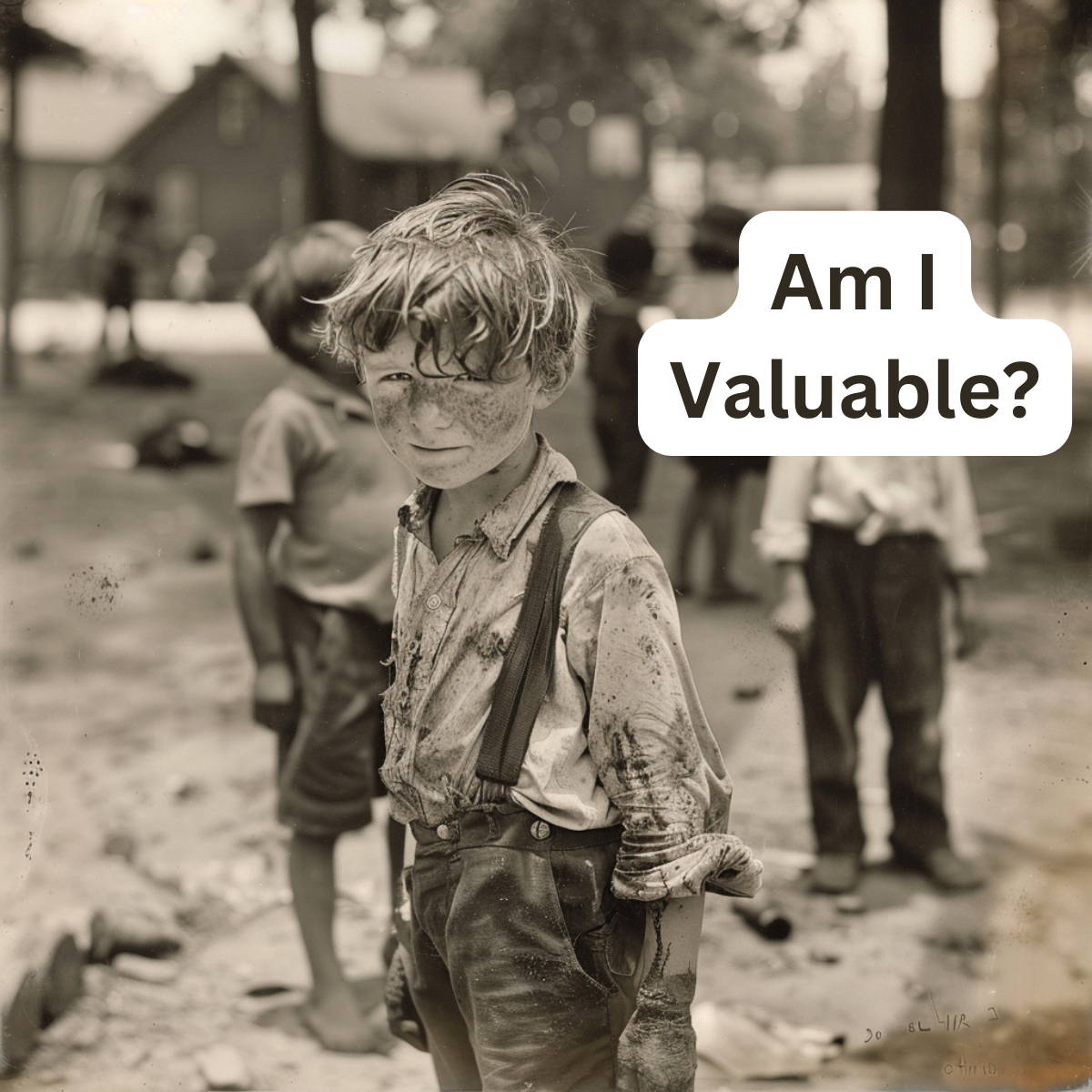The notion that human life is priceless is one we unanimously agree upon, yet I find myself compelled to pose a challenging question: Do we truly believe in this principle? I would defend the value of a friend or family member with the same fervor as anyone else, but it leads me to ponder the depth of our understanding regarding our own worth, let alone that of another person. Anecdotally, observing the events unfolding in the world casts serious doubt on our ability to appreciate the value of others. It appears we harbor more disdain than anything else. This contemplation brings me to question my own value. What factors should be considered in this evaluation?
A simplistic yet flawed perspective on value equates it to the amount of currency exchanged for one’s time. This becomes particularly intriguing when considering the frequent complaints about being ‘underpaid.’ Such grievances, at their core, reveal a profound belief: individuals perceive they contribute more value to their company than the compensation they receive. Pause for a moment to reflect on this notion. The very reason a company employs you is because you offer a service more valuable than the cost to hire you—a fundamental value proposition. Therefore, the underlying message is quite revealing: you are providing a service of significant worth to your employer, who, in turn, derives additional value by compensating you less than the potential alternative cost.
While we may desire higher compensation than we currently receive, it’s crucial to acknowledge that merely asking for more money without altering the value proposition rarely forms the basis of a persuasive argument. A more effective approach centers on the concept of value exchange. Demonstrating an increased ability, willingness, capability, or capacity to provide more value in exchange for higher remuneration represents the strongest position in such negotiations. This principle applies universally across any relationship predicated on the exchange of value for currency.
Yet, as I now observe my dogs, who sit expectantly before me, hoping for a moment of affection, a meal, or a walk, I’m reminded of a different aspect of value. Their endearing gaze, while undeniably cute, doesn’t equate to any form of monetary gain. Indeed, these dogs cost me financially and possess negligible resale value. This scenario underscores a pivotal realization: monetary exchange is not the sole determinant of value. There must be another form of value I receive in this exchange, right?
The psychological and emotional benefits derived from pet ownership extend far beyond the tangible realms of monetary value, profoundly enriching our lives in myriad ways. Pets, with their unconditional love and companionship, offer a unique source of comfort and support that can significantly reduce stress levels and alleviate feelings of loneliness. The simple act of petting a dog or cat can release endorphins, promoting a sense of calm and happiness in their human counterparts. Furthermore, pets encourage us to adopt healthier routines, such as regular walks or playtime, fostering not only physical well-being but also emotional resilience. These intangible benefits, though not quantifiable in financial terms, are invaluable, deeply influencing our perception of value. They remind us that the true worth of companionship cannot be measured by monetary exchange but is instead rooted in the joy and fulfillment these loyal companions bring into our lives.
One might argue that humans provide significantly more value to those around them than can be captured by mere financial transactions. Qualities such as empathy, emotional intelligence, reliability, consistency, leadership, initiative, and creativity contribute to a rich tapestry of value that transcends monetary considerations. These intangible attributes constitute a vital part of our value proposition to the world. However, it’s worth noting that an equivalent exchange does exist beyond monetary transactions. While some may trade resources with inherent monetary value, the most fundamental currency we exchange is our time. Time, therefore, becomes the primary medium through which we trade these invaluable personal qualities, underscoring its pivotal role in our interactions and the value we provide to one another.
This brings us to a stark realization, a sort of gut punch, if you will. When an employer chooses not to compensate you adequately, it’s a clear indicator of their valuation of your contributions—simply put, they may not value you as much as you’d hope. Similarly, when a client is unwilling to ensure you profit from a transaction, it’s evident they don’t hold your services in high regard. The more challenging realization, however, comes on a personal level: if someone consistently chooses not to spend their time with you, it’s a painful but clear message about how much they value your presence in their life. This revelation can be tough to accept but underscores the profound importance of time as a measure of value in our relationships.
Your initial reaction might mirror my own: ‘What’s wrong with this person that they don’t want to spend time with me? I’m valuable; they should recognize this and seek out my company!’ While this sentiment is understandable, it confronts a harsh reality: no matter how much effort you invest in persuading someone to spend time with you, they will only do so if they perceive value in the experience. This principle applies universally, even to those closest to us; for instance, even your own mother will prioritize other activities over spending time with someone who, in her view, is more draining than enriching. I know what you’re thinking – you have a myriad of reasons why this perspective might seem incorrect. However, I invite you to reflect on your own choices: Who do you choose to spend your time with, and why?
This brings me to my concluding thought: what do we truly have control over? The answer lies in our ability to enhance our own value. If you aspire for an employer to compensate you more generously for your time, the solution is to augment the value you contribute. Similarly, if you wish for someone to invest more of their time in you, you must ensure that the time spent together is valuable to them. Whether or not you subscribe to this viewpoint, the underlying principle is irrefutable: individuals allocate their time and resources towards those who enrich their lives. This perspective, while straightforward, underscores a powerful truth about human behavior and the dynamics of value exchange.




